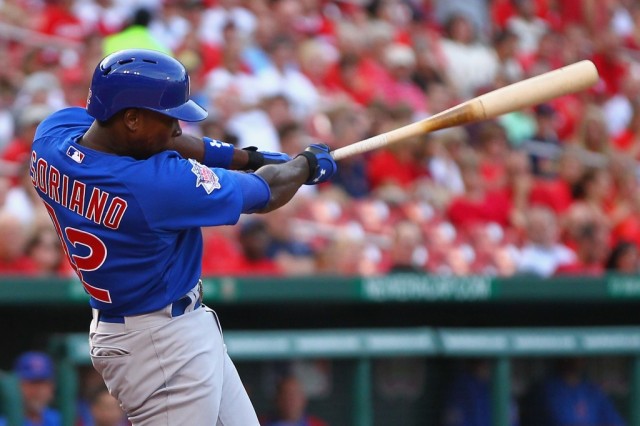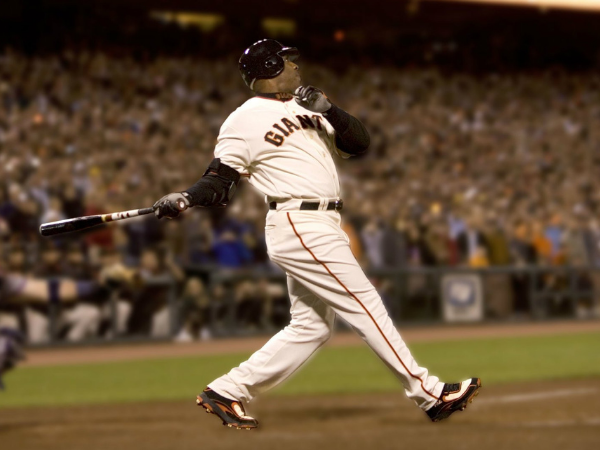Table of Content
Then a rookie relief pitcher for the Cincinnati Reds, the fireballer unleashed a fastball clocked at 105.1 mph by PITCH/fx. The longest ever verified home run didn’t happen in the MLB, it happened in the Triple-A. In 1987, Joey Meyer, playing for the Triple-A Denver Zephyrs, launched this ball astonishing 582 feet home run.
White was an All-Star with Arizona in 1998, spent two seasons with the Dodgers and finished his career with the Milwaukee Brewers in 2001. Of course, before the glory days of the franchise, Campaneris slogged away on some terrible late 1960s Kansas City Athletics squads and played for two teams that lost more than 100 games and another that dropped 99 before the franchise moved to Oakland. Unfortunately, from 2008 to 2014, he played more than 100 games only twice and played less than 40 games four times. While Anderson never again approached that figure in terms of overall homers, he did go on to tally seven leadoff jacks in consecutive years in 1999 and 2000, leading to a Baltimore franchise record of 44. Henderson’s single-season high in this category came when he hit nine with the Yankees in 1986, which also was the year he totaled a career-high 28 homers, a number he matched with the A’s in 1990.
Most times on base as leadoff hitter
Traditionally, the leadoff hitter has been utilized as a contact-oriented position. The leadoff hitter is usually tasked with being able to reach base at a proficient on-base percentage and generate runs for the team. Secondary goals for such a player include wearing down a pitcher's stamina and providing a dangerous presence along the basepaths to create more offensive opportunities. As a result, the prototypical leadoff hitter is small ball oriented, with elements such as contact ability, speed, patience, and occasionally defense elevated to an important level. Power hitters, instead, would be put in the third and fourth slots to drive in the leadoff hitter and produce more runs as a result, thus deemphasizing the necessity for power amongst leadoff hitters. The correlation between leadoff hitters and small ball stretches as far back as 1898 with mentions of a "small, active fellow who can hit, run and steal bases" as being fit for the position.
A member of the newly elected Hall of Fame class of 2015, Craig Biggio is certainly one of the greatest players of all-time and he spent the majority of his 20-year Major League career hitting leadoff for the Houston Astros. Like some that have come before him on this list, Paul Molitor eventually outgrew the leadoff spot. However, he spent enough time atop the batting order he is still considered one of the best in the history of the game. The left-handed hitting outfielder led off in 1,410 of 2,189 career games, mainly with the Philadelphia Phillies, though he also often held the top spot in the order with the Chicago Cubs in 1960 and 1961 as well as with the New York Mets in 1962.
Who has the most stolen bases in a season?
After discovering he was nearsighted, Jackson regained his vision and his touch in 1971, a season best remembered for his legendary blast at the All-Star Game in Detroit that cleared Tiger Stadium’s upper deck. On the basepaths, the agile Collins was a master at studying pitchers to gain that extra step; he stole a career-high 81 bases in the A’s first championship campaign of 1910, and finished his career with 741—good for eighth on the all-time list. In 1912, he stole six bases in two different games, 10 days apart; only three other major leaguers have accomplished the feat even once. Bagger as an opening shot in regular season play no less than 11 times for the Redlegs. Pete turned the trick in the second game of a Labor Day- doubleheader at New York's old Polo Grounds on September 2, 1963, leading off against Jay Hook of the Mets.
More than that, the 17-time all-star was always getting on base by walk or hit, making him an ideal leadoff candidate. Those are all ingredients that made him a great leadoff man over his 20 seasons in the majors. During that time, he racked up over 3,000 hits and 291 home runs while also stealing 414 bases.
Career Leaders & Records for Home Runs
In the sport of baseball, a home run is a hit in which the batter scores by circling all the bases and reaching home plate in one play, without the benefit of a fielding error. This can be accomplished either by hitting the ball out of play while it is still in fair territory , or by an inside-the-park home run. Max Bishop owns the highest OPS in the leadoff spot and 15th-best (.423) overall in major league history.
With that in mind, we present the top 30 MLB leadoff hitters of all-time. Henderson finished this illustrious career with 3,055 hits and an on-base percentage of .401, which is exactly what you want from a leadoff hitter. Of course, with a career that spanned from 1979 to 2003 and included 10 all-star selections, three Silver Slugger Awards, and MVP honors in 1990, nobody is touching Henderson when it comes to being the ideal leadoff hitter. Friday night in Los Angeles' Dodger Stadium, Cardinals legend Albert Pujols hit two home runs in the first four innings. Only three players had previously gotten to the threshold of 700 career home runs in Major League Baseball history. In baseball, a leadoff hitter is a batter who bats first in the lineup.
While Foxx and Grove grabbed most of the headlines during the A’s second dynasty, Simmons garnered the same level of respect from weary opponents, proving to be a tougher out than Foxx and sometimes wielding as much power with the bat. The fans certainly thought highly of Simmons’ talent; when the general public was given voting power for the first All-Star Game in 1933, he received the most votes. Then, of course, there is always the possibility of the first two or three batters in a game hitting home runs. A player is considered inactive if he has announced his retirement or has not played for a full season. While only Rickey Henderson stole more bases in the No. 1 spot, Brock's longball ability and relative lack of patience made him more lethal in the second and third positions.

The last change in the cutoff for the top 300 occurred on September 11, 2022, when Eugenio Suarez hit his 223rd career home run, displacing Jason Bay and Don Mattingly. As The Book says, OBP is more important than speed out of your leadoff hitter. Henderson concluded his successful career with 3,055 hits and a.401 on-base percentage, which is ideal for a leadoff hitter. Of course, with a career spanning 1979 to 2003 that includes 10 all-star choices, three Silver Slugger Awards, and MVP honours in 1990, Henderson is unrivalled as the ultimate leadoff hitter. Richie Ashburn was the best leadoff hitter in baseball during the 1950s. He was an excellent contact hitter with just enough speed to be an outstanding leadoff batter.
Even though 39 percent of Raines' plate appearances came in the Junior Circuit, we have him ahead of Pete Rose by thismuch as the best leadoff hitter in National League history. The four-time All-Star had at least 166 hits in seven consecutive 154-game seasons and averaged 2.3 walks for every strikeout in his career. Brady Anderson also set a record with leadoff homers in four consecutive games. His 2007 National League MVP season was a thing of beauty — 30 homers, 33 stolen bases and a .903 OPS in the No. 1 spot. When it comes to naming the top leadoff hitter of all-time, there’s no question. Rickey Henderson isn’t only the best ever to hit atop the batting order – he’s one of the best to ever play the game, period.

The leadoff hitter can handle the bat by bunting, good hit and run guy and doesn’t strike out a lot. Few ever did it better than Wade Boggs, a six-time OBP leader who ranks No. 3 in the category among leadoff hitters and 25th overall. A three-time All-Star, Anderson had a knack for drawing walks and getting hit by pitches, which helped boost his on-base percentage despite regularly modest batting averages (he never hit .300).
A six-time All-Star, Brock began his career with the Chicago Cubs but blossomed after a trade to the St. Louis Cardinals in 1964. He led the Majors in runs scored in 1967 and 1971, in doubles and triples in 1968 and was the greatest base stealer of his generation. Hall of Famer Lou Brock is certainly one of the top ten leadoff hitters in Major League history, though you might have expected to see him a little higher on the list.
He hung ’em up at age 37 after an injury plagued year with the Padres in which he failed to hit a leadoff homer for the first time since 2007, the second of his 14-year career. Nevertheless, Soriano owns MLB’s single-season record with 13 leadoff homers for the 2003 Yankees. He also hammered another dozen with the 2007 Cubs (as part of his franchise-best 22 with Chicago) and nine more with the Nationals a season before that. Below is a list of Major League Baseball players with the most plate appearances from the leadoff spot as of the end of the 2020 season.
The A’s 10 Greatest Hitters
Below is a list of Major League Baseball players with the most games played in the leadoff spot as of the end of the 2020 season. Adding more bravado in 1972, Jackson reportedly became the first major leaguer to sport a mustache in nearly 60 years—and every A’s player followed suit. As the A’s embarked on their three-year dynasty of the early 1970s, Jackson was there to lead the way—highlighted by a 1973 AL MVP effort in which he collected a league-leading 32 homers and 117 RBIs. He missed the 1972 World Series after tearing up his hamstring in the ALCS against Detroit, but hit .302 over the next two Fall Classics—taking MVP honors in the 1973 Series against the New York Mets despite performing under a “credible” death threat. As might be expected, most of the leadoff home runs were hit in the1l950s and 1960s.

Brady Andersonhit at the top of the lineup a franchise record 1,281 times for the Baltimore Orioles in his 14 seasons with the club. With White leading the charge at the top of the order, the Blue Jays made it to the postseason in 1991 and won back-to-back World Series titles in ‘92 and ‘93. He signed with the Florida Marlins as a free agent in 1996 and won a third World Series ring in ’97.
No comments:
Post a Comment